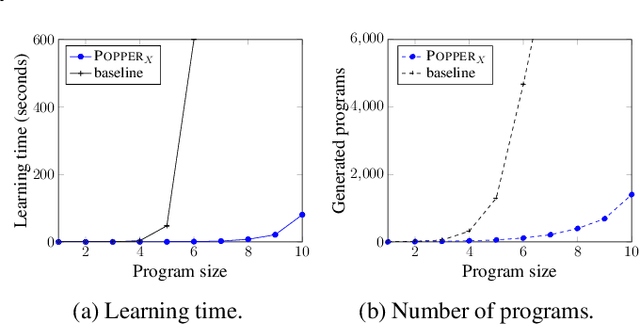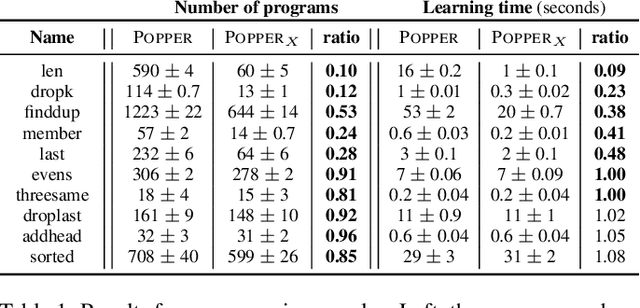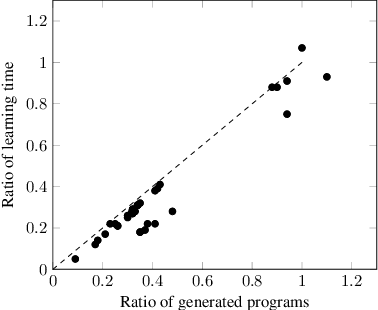Learning Logic Programs by Explaining Failures
Paper and Code
Feb 18, 2021



Scientists form hypotheses and experimentally test them. If a hypothesis fails (is refuted), scientists try to explain the failure to eliminate other hypotheses. We introduce similar explanation techniques for inductive logic programming (ILP). We build on the ILP approach learning from failures. Given a hypothesis represented as a logic program, we test it on examples. If a hypothesis fails, we identify clauses and literals responsible for the failure. By explaining failures, we can eliminate other hypotheses that will provably fail. We introduce a technique for failure explanation based on analysing SLD-trees. We experimentally evaluate failure explanation in the Popper ILP system. Our results show that explaining failures can drastically reduce learning times.
 Add to Chrome
Add to Chrome Add to Firefox
Add to Firefox Add to Edge
Add to Edge